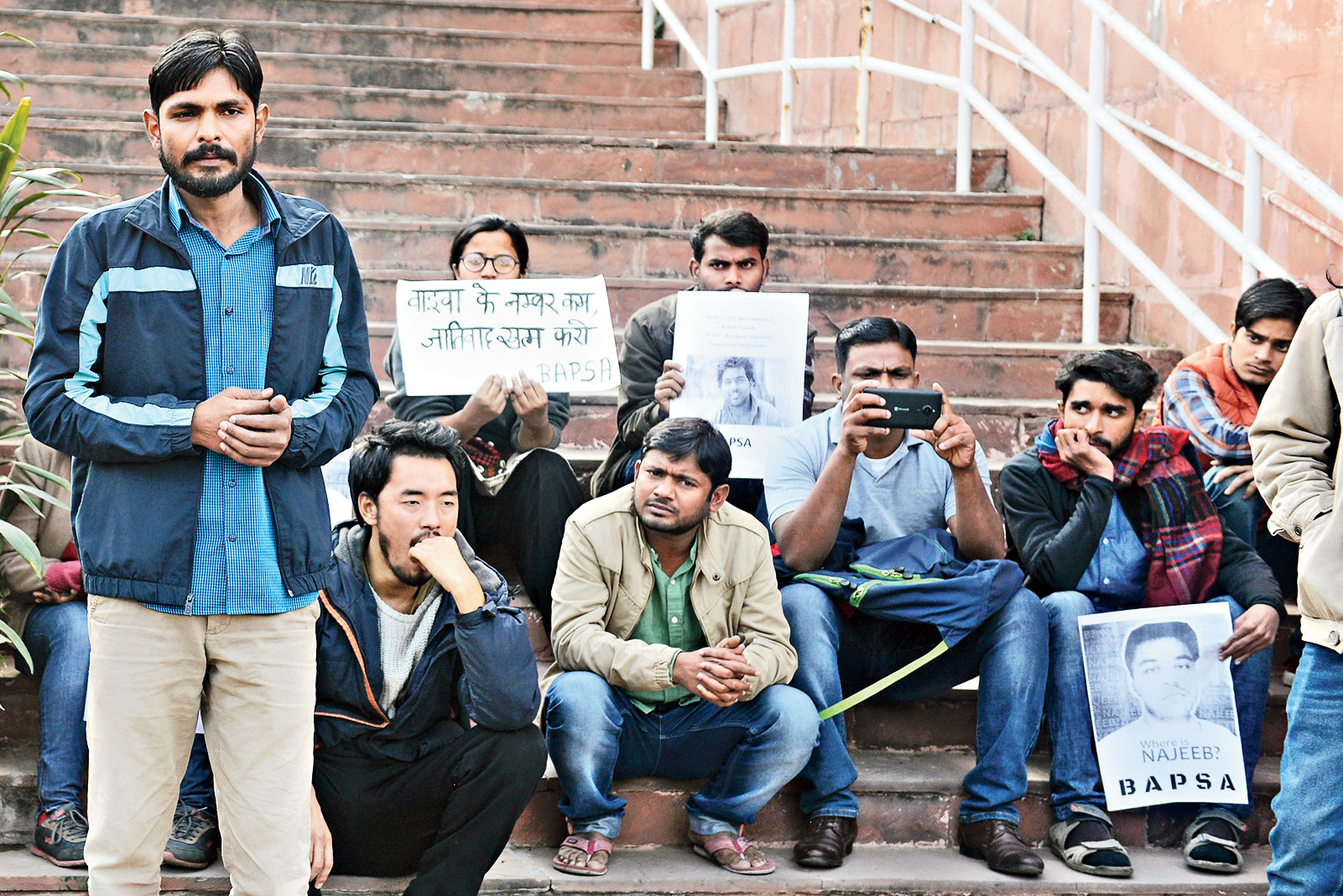The University Grants Commission has fixed a 70:30 formula for selecting research students with the bigger weightage for what candidates score in their written entrance exam and 30 per cent of how much they are marked in interviews.
The formula — which the higher education regulator notified recently — replaces a two-year-old system where the written test was a qualifying exam for the viva voce and candidates were selected entirely on the basis of how they fared in the interview.
The amended regulation says “that for selection of candidates, a weightage of 70% to the entrance test and 30% to the performance in the interview/viva voce shall be given”.
Delhi High Court had earlier struck down the UGC policy of interviews being the sole determinant for admission.
The second amendment to the UGC (Minimum Standards and Procedure for Award of MPhil/PhD Degrees) Regulations, 2016, however, failed to allay fears among a section of students.
This section says the 30 per cent weightage for interviews still leaves open the scope for caste-based discrimination against candidates.
During viva voce, the interview panel evaluates a research proposal and also how well a candidate can communicate.
Prashant Nihal, a PhD student from Jawaharlal Nehru University, said the reduced weightage for the viva voce score — from 100 per cent to 30 per cent — was better than before but still not enough to check bias against students from the deprived sections.
JNU had been following a 70:30 weightage formula before it adopted the UGC norms in 2016. Around that time, a committee headed by Prof. Abdul Nafey found evidence of caste-based discrimination in the viva voce in the institute and recommended reducing the weightage to 15 per cent for interviews and increasing to 85 per cent the weightage for the written test.
“In 2016, we were demanding reduction of weightage to 15 per cent for interviews. But the university adopted the UGC regulation that gave 100 per cent weightage to the interview. Now the UGC’s norm of 30 per cent weightage for the interview can be used to discriminate against students from deprived sections,” Nihal said.
Two other committees that JNU had set up also found evidence that Scheduled Caste and Scheduled Tribe candidates were awarded poor scores in interviews although their entrance exam scores were high.
“The scope for discrimination will be there under 30 per cent weightage,” said Aakriti Boudh, a PhD student from Delhi University.
The UGC had earlier amended its regulations once to allow a relaxation in qualifying marks in the written entrance test for students from the Scheduled Castes, Scheduled Tribes and the Other Backward Classes.
Boudh agreed with Nihal on another point too. The DU doctoral student said the change in the question format from subjective to the objective-type Multiple Choice Question pattern that several universities, including JNU, have announced this year would affect the selection of serious candidates.
“Serious students who want to do research will face difficulty. Aspiring researchers make in-depth preparations but those preparing for civil service exams or coming from universities where an objective-type question pattern is the norm will find it easier to crack the test,” Boudh said.
Boudh raised another point too regarding students who get selected for junior research fellowship (JRF) by securing good marks in the National Eligibility Test (NET) of the UGC and are eligible to appear for interviews for MPhil/PhD courses without having to sit for the entrance test in several universities.
“How will the NET/JRF candidates be selected? Will they be selected purely on interviews?” Boudh asked.
Prof. N. Sukumar, who teaches political science at Delhi University, said the new 70:30 formula would make the selection process tedious.
“Earlier, each DU department had their own policies. They selected students using several criteria like academic record, entrance and viva voce. Now this 70:30 formula will make the process more tedious,” Sukumar said.










